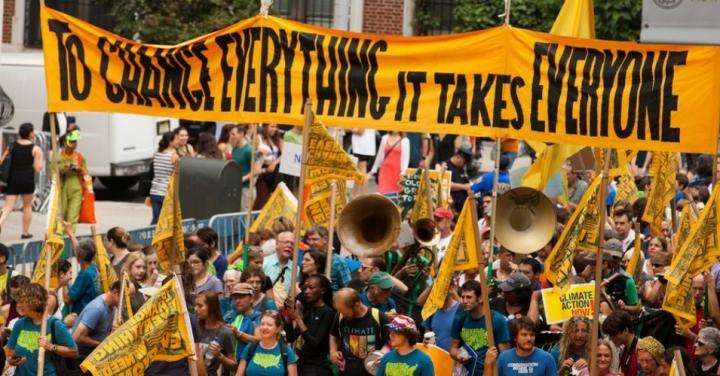Sexy ideas won't slow climate change if people don't buy in and buy them

As governments and researchers race to develop policies and technologies to make energy production more sustainable and mitigate climate change, they need to remember that the most sophisticated endeavors won't work if they're not adopted.
That's the viewpoint of Thomas Dietz, Michigan State University professor of sociology and environmental science and policy, and co-editors in "Towards a science of climate change and energy choices," their introduction to a new collection of papers on how to address the linked problems of energy sustainability and climate change jointly published by the journals Nature Energy and Nature Climate Change on May 9. Dietz is also a faculty member in the MSU Center for Systems Integration and Sustainability.
"The special issue was prompted in part by the Paris Agreements where 177 countries have agreed to take action on climate change," Dietz said. "To meet the goals set by those agreements, we will need to draw on what we know about human behavior, about how organizations work, about how policies unfold. Insights from the social sciences can help achieve those goals and at the same time help insure that people throughout the world have access to affordable energy."
The two linked special issues bring together an international group of social scientists to reflect on the state of the art in energy social science research. The topics covered are broad:
- how best to structure international treaties on climate change
- how to encourage more energy efficiency by households and organizations
- how communities react to new energy facilities like wind farms
Dietz, along with co-editors Benjamin Sovacool and Paul Stern, synthesize the papers in the special issue.
"The overall message is that we know enough to have much more effective policies on energy use and climate change, and that the design of sound policies has to be based on social science research," Dietz said. "The starting point for most policies and programs is to assume people make carefully thought out decisions with all the information they need. But we don't usually do that—we are busy, some of the tradeoffs we have to make are complicated, and it can be hard to get the information we need. So we have to design policies for real people and real organizations. We have to make it easy to make the best choice."
Dietz also pointed out that people are not just consumers when it comes to energy. They are also citizens, neighbors, members of a community and likely work in organizations. There are many ways and places people can influence decisions about energy use, from buying products from companies that pledge sustainability, to voting for politicians who offer tax incentives for residential solar panels.
Dietz has been studying energy since the 1970s. He is known for his leadership of the behavioral wedge studies demonstrating that simple, money saving actions by households could reduce U.S. greenhouse gas emissions by more than 7 percent.
"The social sciences know a lot and we know what to do next to help with the climate and energy problems," Dietz said. "But so far there is almost no funding. One estimate is that the United States invests less than 3 percent of the funds it puts into energy hardware research into social science energy research. But if technologies don't get adopted and used, they don't have any impact."
More information: Towards a Science of Climate and Energy Choices, DOI: 10.1038/NCLIMATE3027
Journal information: Nature Energy , Nature Climate Change
Provided by Michigan State University


















